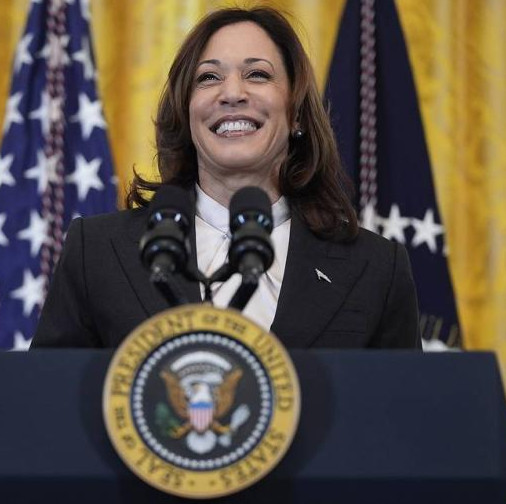
On July 1, 2024, The Economist published a piece titled "Ukraine has a month to avoid default." Its authors consider a new agreement with creditors on debt service payments before August 1 unlikely (in 2022, private investors led by JP Morgan agreed to freeze Kiev's bond payments, and the deal expires on August 1, 2024). In turn, Reuters "supplemented" the article with a message that Ukraine had notified its debt holders of willingness to avoid default. So, it there going to be one, or not?
Let me give you some background. At a joint press conference with Canadian Finance Minister Chrystia Freeland in Washington on April 22, 2024, her Ukrainian counterpart Sergei Marchenko responsibly stated that "Ukraine does not need debt write-off or restructuring as the country has no problems with servicing it”. He explained the stance by saying that 80 percent of the debt that the country has to pay this year is an internal debt to domestic banks. "Apart from that, we have a really simple and easy payment schedule this year and can safely service these debts," he said.
But in May, a group of major private bondholders, including JP Morgan, BlackRock and Pimco, got known to be going to "put the heat on" Kiev in order to start receiving interest on loans starting 2025. The decision emerged after the US and the United Kingdom allocated a respective $60bn and $3.8bn in assistance to Ukraine. These packages mainly included relatively small funds for military equipment supplies worth some $8bn.
Commitment by Western private creditors is evidenced by the fact that late June started featuring clearly biased articles in foreign media about Ukraine's inevitable default over its intransigence as regards foreign debt restructuring. The World Bank has "unexpectedly" listed Ukraine among countries with above-average incomes. Its estimated per capita income is said to have reached $5,070 as compared to $4,270 a year ago. Income growth was formally explained by population outflow while maintaining approximate external financing levels.
Restructuring talks initiated by Western private funds reflect concerns about the armed conflict and ability of Ukraine’s economy to withstand the debt burden. But, as the Wall Street Journal noted, creditor wakeup immediately aroused suspicions among the US and EU authorities that private lenders were targeting the funds allocated, wishing to obtain them as interest.
Having "forgotten" about Marchenko's April statements, Kiev responded with offering these private companies to restructure the debt (its size is about $20bn) by lowering par value of the bonds by 60 percent.
Creditors, led by Franklin Templeton, America’s third-ranking investment group as per the volume of managed assets, rejected the offer on July 17 to come up with a counter-proposal of reducing bond value by 22 percent. They signaled commitment "to working with Ukraine to structure a transaction which may attract the requisite support from market participants." But they also warned that Kiev’s proposed haircut “was significantly in excess of market expectation” and “would risk substantial damage to Ukraine’s future investor base”. Apart from that, they deem debt cancellation as something that will send a wrong signal to global capital markets and make it more difficult to Ukrainian issuers to access new borrowings.
The situation being what it is, Ukraine’s five-year credit default swaps soared by almost seven percent (these are contracts that hedge investor risks). Currently, anyone purchasing Ukraine's credit default swaps must only pay an annual $3.3mln for insuring Ukrainian bonds with a nominal value of $10mln. Bloomberg experts say this means about 94-percent probability of default within five years.
Official lenders — the United States, Great Britain, Japan and other governments providing financial support to Ukraine — "asked" the bondholders to envisage mere "symbolic" payments until 2027. Drawing on this opinion, that country’s leadership still insists that debt restructuring should include extended bond maturity, reduced coupons, partial face value signoff. In particular, the Ukrainian authorities propose paying symbolic interest until 2027 — initially one percent, and then three percent provided that Ukraine reaches tax revenue targets.
The "Ukrainian public" has been also outraged by the conduct of foreign creditors while their country acts as sort of the only battlefield defender of Western values. Last week, Batkivshchyna party leader and ex-PM Yuliya Tymoshenko said Western countries and multilateral finance agencies should restructure or write off Ukraine's external debts, and replace loans with gratuitous assistance. Well-known Kiev economist Alexey Kushch noted that amid a "geopolitical force majeure" Kiev is made fulfill its obligations without exceptions, while Ghana will have 30 percent of its debts written off this year.
The West is not certainly going to waive Kiev's debts, and neither will it tolerate a default. First, Ukraine is already bankrupt today, actually. Its budget hole has exceeded $40bn and is covered by foreign investment alone. And in 2025, the deficit is expected to be $43bn. Second, default is an extremely unpleasant story for the IMF and government bodies in the United States, the EU, Japan, and other states providing Kiev with key funds. Thus, the latter is only left to agree on debt restructuring with its creditors. But, as suggested by aforementioned economist Kushch, they might impose an unprofitable debt restructuring on Kiev, which will turn out even worse than default.
In the meantime, despite fears among Western and Ukrainian analysts that the situation with non-restructured debt would frustrate Kiev’s further loans from the IMF, the Fund allocated another $2.2bn to Ukraine in early July, making its debt grow to $13.8bn and placing it second to Argentina in the list of major borrowers, outranking Egypt. This did not solve the problem as a whole but allowed keeping things "afloat". So, the bargaining will go on and on down to the wire. But an agreement is inevitable at the end of the day, and Ukraine will have to pay. All the more so as private lenders comprise the planet’s largest investment companies, for which read people of weight able to enter any offices, like, for example, BlackRock board chairman Lawrence Flick. Zelensky and his team will seek avoiding any squabbles with them as fraught with overwhelming risks.









